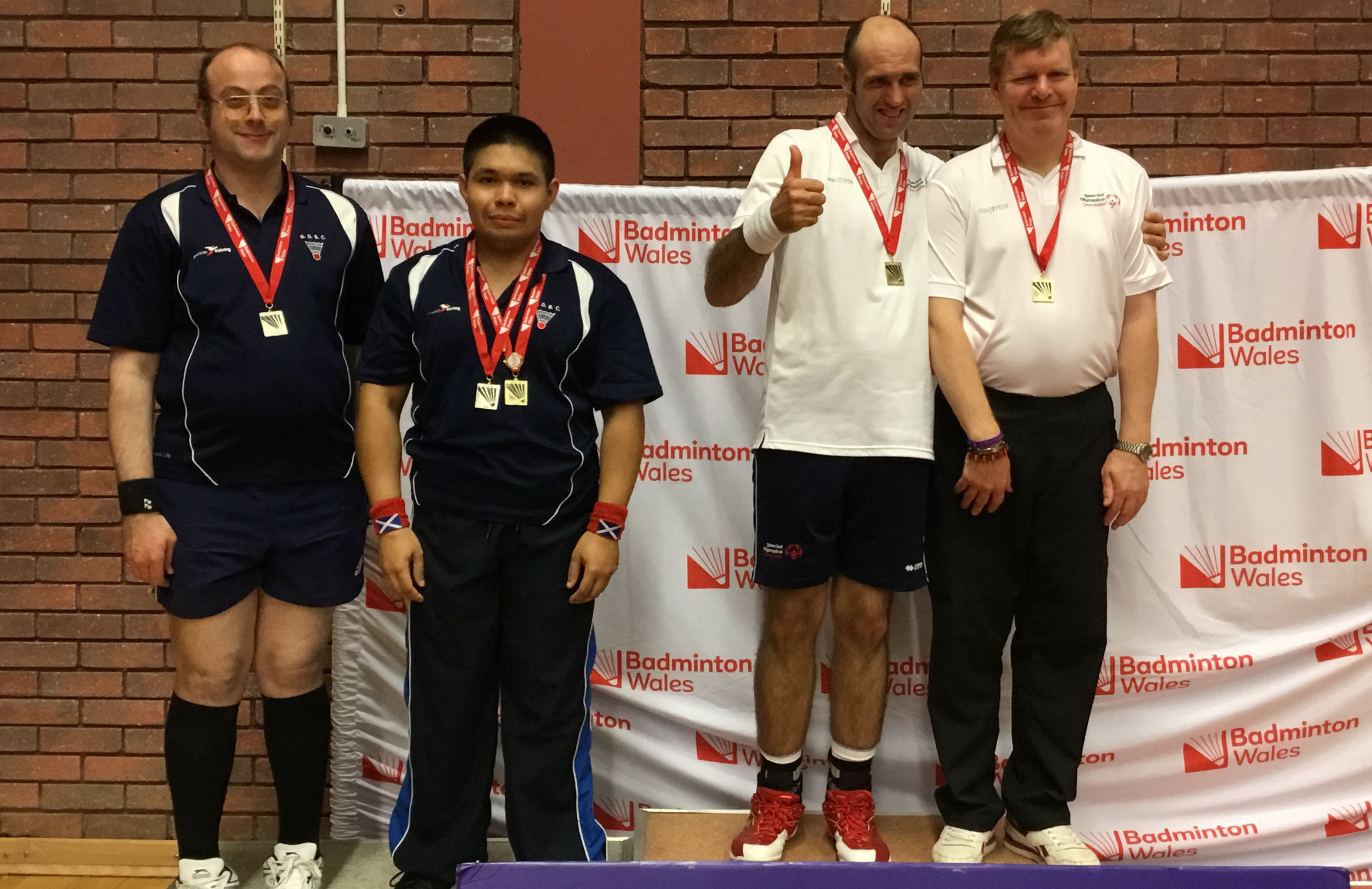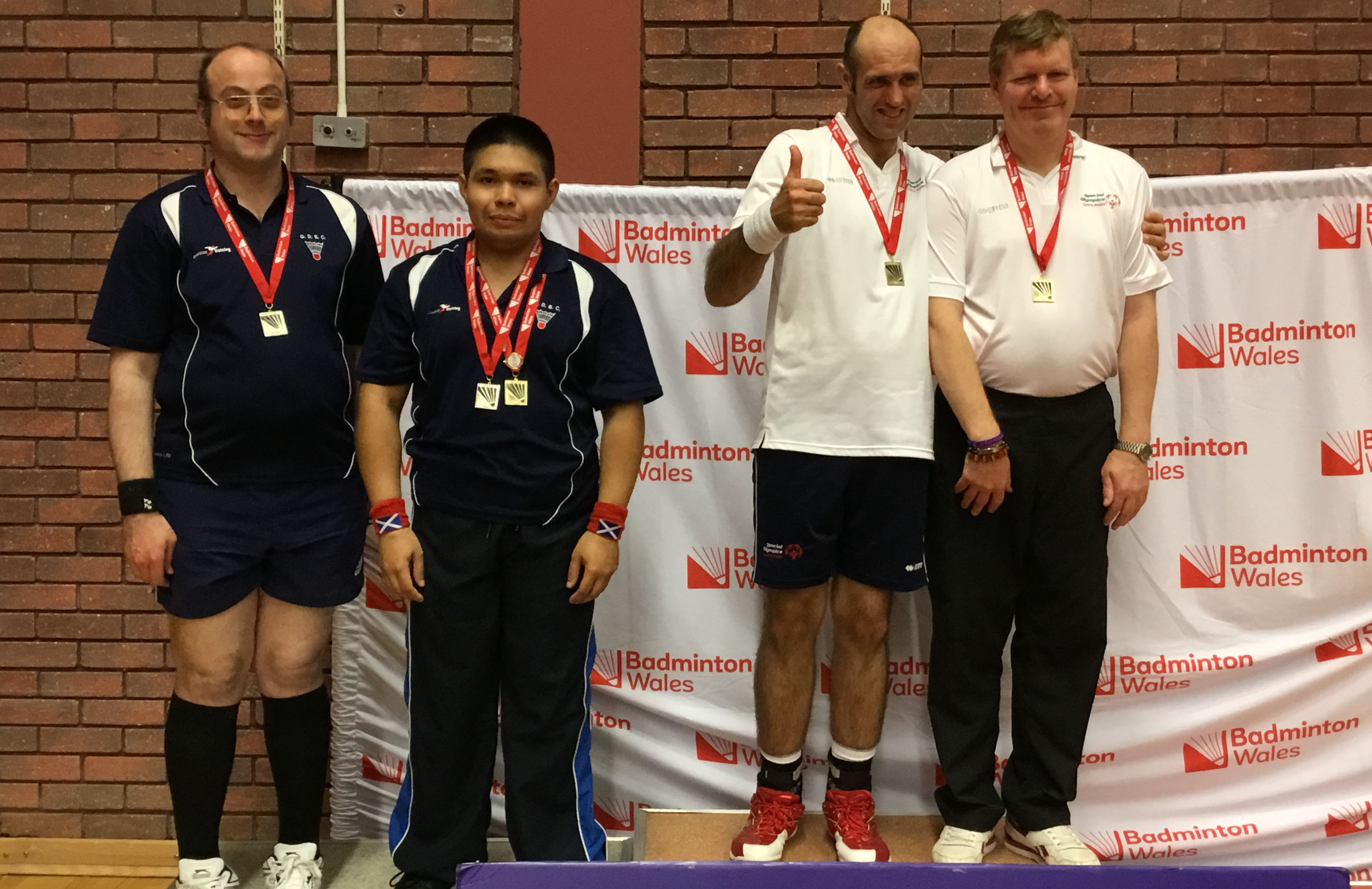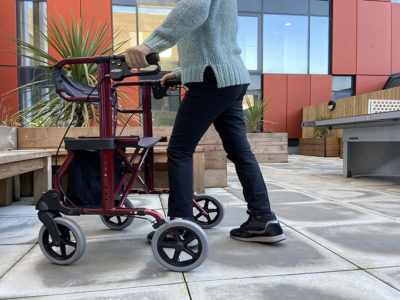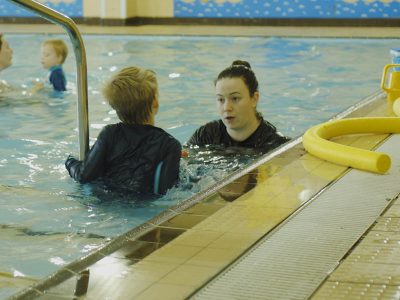Making a racquet
Badminton distincts itself from other racquet sports by using a shuttlecock instead of a ball.
The feathers on the shuttlecock gives it a much higher drag, causing it to de-accelerate more rapidly.
You can play with one player or two players per side (separated by the net).
The modern game of badminton developed from an earlier variant called battledore and shuttlecock in the nineteenth century. It is thought the game was first played among expatriate officers in British India.
The International Badminton Federation, now called the Badminton World Federation (BWF), was founded in 1934. It became an official Summer Olympic sport at the Barcelona Games in 1992 with four events: men’s singles, women’s singles, men’s doubles, and women’s doubles.
Team GB has yet to produce a medalist at the Olympics for badminton. According to Shuttlesmash, the top-performing country is China, followed by Japan and Indonesia.
Badminton Wales
There are many clubs and societies dedicated to the sport dotted all over the country. There are ten clubs near Cardiff, including clubs for disabled players like Cardiff Shadows Badminton Club.
Badminton Wales offers a whole selection of membership variety designed to cater for a range of players. You can apply to play as an individual competitively but can also apply as a social group. University societies and school groups can also apply for membership.
The body are also strongly committed to supporting new and current badminton coaches. They offer pathways and courses specific to coaching.
You find a club near you or buy a membership to Badminton Wales through their website.
Disability Badminton
There is a concerted effort from the body to develop para-badminton players. Badminton Wales hope to build on their current 4 Nations tournament, where competitors are pitted against other British nations, and identify and train potential candidates to represent Great Britain at Paralympic level.
The Para-Badminton World Championships has run bi-annually for twenty one years. It was organised by the Para-Badminton World Federation, but it was absorbed into the BWF in 2011.
Para-badminton, along with taekwondo, is to make its debut in the Paralympic games in Tokyo next summer.
There are six different classes within para-badminton:
WH1 (Wheelchair/ severe impairment)
WH2 (Wheelchair/minor impairment)
SL3 (Standing/lower limb impairment/minor)
SL4 (Standing/ lower limb impairment/severe)
SU5 (Standing/upper limb impairment)
SS6 (Standing/short stature)
Team GB are set to contest for medals in Tokyo next year. Para-athletes like Jack Shephard (SS6) and Martin Rooke (WH2) performed well at last month’s Hulic Daihatsu Japan Para-Badminton International 2019 tournament.
If you have any interest as a player, coach, or volunteer, email enquires@badminton.wales.
The national body for the sport looks to introduce more players to badminton ahead of its 2020 Paralympic debut

Badminton Wales are looking to seek out and develop disabled players to make the sport more inclusive and dynamic.
This has come before para-badminton is due to make its debut at the Tokyo 2020 games this summer.
Although the GB para-badminton squad has already been announced, the national body for the sport wants to identify, train and develop disabled players, trainers and coaches with the ultimate goal to represent Great Britain in future Paralympic squads.
Badminton Wales currently host a successful 4 Nations event for disabled competitors and hope to build on this success.
Cardiff has been at the centre of the sport recently, as Sport Wales National Centre in Sophia Gardens hosted an international tournament from 27-30 November, for professionals to gain crucial ranking points in the run-up to the Olympics.
A worldwide invitational tournament, many nations were represented.
Wales representatives William Kitching and Aimie Whiteman unfortunately only got through to the final 16 but players from England and Scotland made it to the final in men’s, women’s and mixed doubles.
“Badminton being in the 2020 Paralympics is really exciting,” said Natasha Cutter, events coordinator for Badminton Wales.
She continued, “It’s another angle that we’re trying as we have quite limited funding at the moment, but within Cardiff we have three disabled clubs running – introducing this incredible dynamic sport to more people is fantastic.”
Assistant England pathway coach, David Lindley, spoke highly of the para-badminton players, “I’m absolutely blown away by their level of skill but also their commitment and I think the opportunity they’ve got now is fantastic.”
Yet there is currently only one professional Welsh para-badminton player, Jack Wilson. Wilson’s solo position in the sport suggests this is an area that can be improved; especially in comparison to other UK nations.
David said: “I think one of the issues going forward is how they [Badminton Wales] promote their commitment, skill and funding more because we’ve got world champions but underneath that, they’re only really coming through in certain areas with the right facilities and opportunities.
“Hopefully the Olympic funding coming in will allow them to branch out a little bit and create more hubs around the country,” David added.
England pathways coach, Julia Quinn, explained how good badminton is as an active sport, “It’s about socialising with other people, it’s about keeping fit, it develops hand eye coordination,” she explained.
“There’s a lot of things that go into badminton that can really help kids later on in life,” she added.
On the subject of the benefits of the sport, Natasha said that getting active can help to improve mental health: “You have all of your happy endorphins kicking off.”
The 2020 summer Paralympic games will begin in Tokyo on 25 August.
Making a racquet
Badminton distincts itself from other racquet sports by using a shuttlecock instead of a ball.
The feathers on the shuttlecock gives it a much higher drag, causing it to de-accelerate more rapidly.
You can play with one player or two players per side (separated by the net).
The modern game of badminton developed from an earlier variant called battledore and shuttlecock in the nineteenth century. It is thought the game was first played among expatriate officers in British India.
The International Badminton Federation, now called the Badminton World Federation (BWF), was founded in 1934. It became an official Summer Olympic sport at the Barcelona Games in 1992 with four events: men’s singles, women’s singles, men’s doubles, and women’s doubles.
Team GB has yet to produce a medalist at the Olympics for badminton. According to Shuttlesmash, the top-performing country is China, followed by Japan and Indonesia.
Badminton Wales
There are many clubs and societies dedicated to the sport dotted all over the country. There are ten clubs near Cardiff, including clubs for disabled players like Cardiff Shadows Badminton Club.
Badminton Wales offers a whole selection of membership variety designed to cater for a range of players. You can apply to play as an individual competitively but can also apply as a social group. University societies and school groups can also apply for membership.
The body are also strongly committed to supporting new and current badminton coaches. They offer pathways and courses specific to coaching.
You find a club near you or buy a membership to Badminton Wales through their website.
Disability Badminton
There is a concerted effort from the body to develop para-badminton players. Badminton Wales hope to build on their current 4 Nations tournament, where competitors are pitted against other British nations, and identify and train potential candidates to represent Great Britain at Paralympic level.
The Para-Badminton World Championships has run bi-annually for twenty one years. It was organised by the Para-Badminton World Federation, but it was absorbed into the BWF in 2011.
Para-badminton, along with taekwondo, is to make its debut in the Paralympic games in Tokyo next summer.
There are six different classes within para-badminton:
WH1 (Wheelchair/ severe impairment)
WH2 (Wheelchair/minor impairment)
SL3 (Standing/lower limb impairment/minor)
SL4 (Standing/ lower limb impairment/severe)
SU5 (Standing/upper limb impairment)
SS6 (Standing/short stature)
Team GB are set to contest for medals in Tokyo next year. Para-athletes like Jack Shephard (SS6) and Martin Rooke (WH2) performed well at last month’s Hulic Daihatsu Japan Para-Badminton International 2019 tournament.
If you have any interest as a player, coach, or volunteer, email enquires@badminton.wales.




